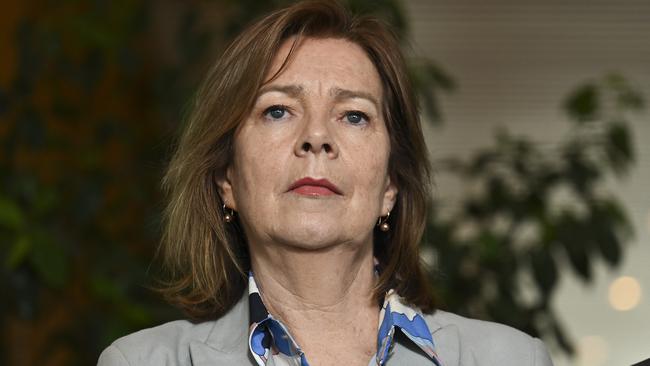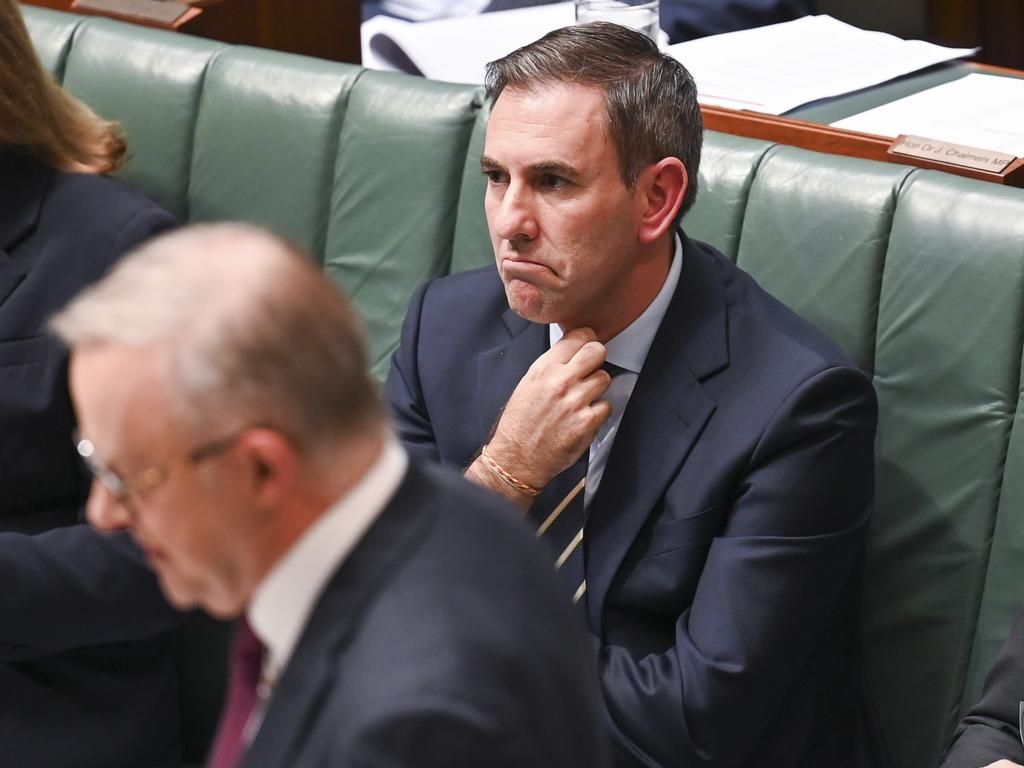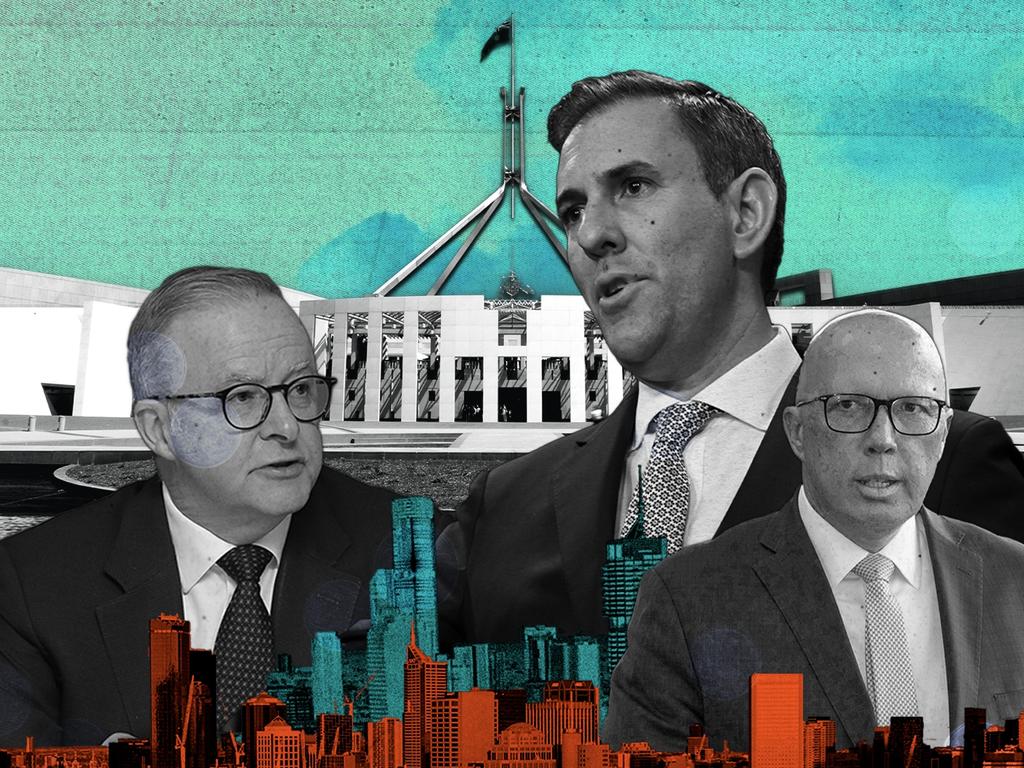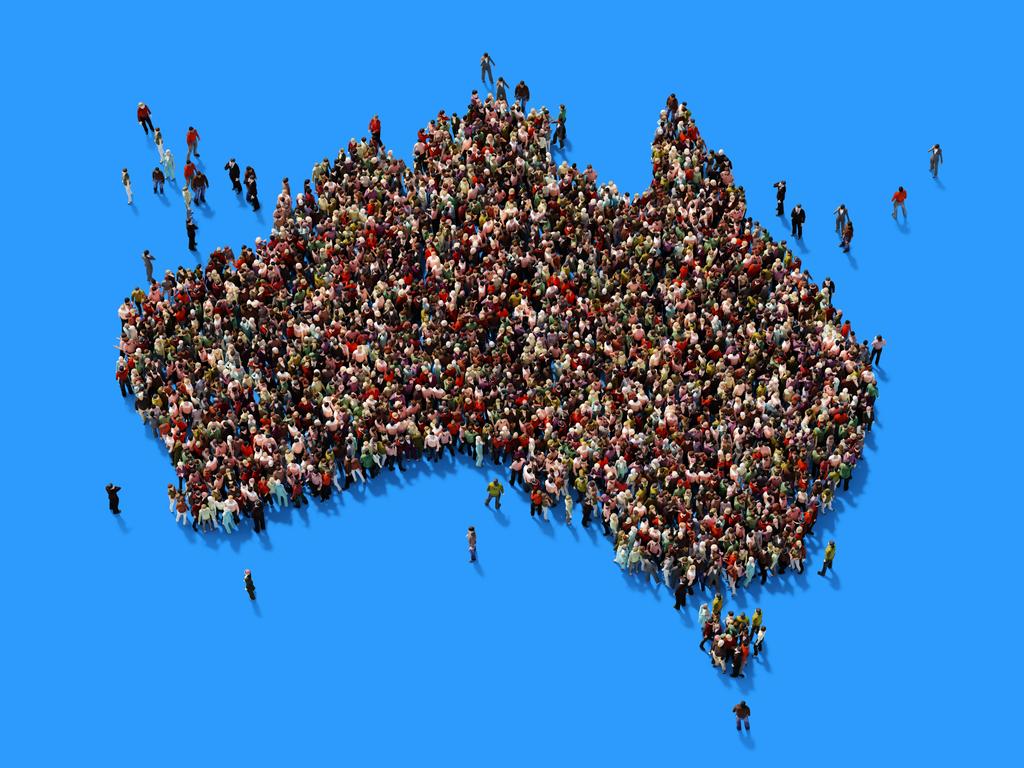Wages war erupts over budget relief for low-paid
Employers have seized on energy bill relief and rental assistance in the federal budget to try to limit an imminent wage rise for 2.9m low-paid workers, igniting a new conflict with the union movement.

Employers have seized on energy bill relief and rental assistance in the federal budget to try to limit an imminent wage rise for 2.9 million low-paid workers, igniting a new conflict with the union movement, which accused business of insulting the nation’s low-paid.
As the Coalition widened the policy divide with Labor by confirming casuals would lose an enhanced right to seek permanency after six months if Peter Dutton won office, employers highlighted Labor’s cost of-living budget measures to try to justify their bid to limit this year’s minimum wage increase to 2.8 per cent.
ACTU president Michele O’Neil condemned the push, accusing employers of trying to pocket the cost-of-living relief themselves, while Workplace Relations Minister Tony Burke said Mr Dutton wanted to rip away the rights of 2.7 million casuals and trap them in insecure work.
In a post-budget submission to the Fair Work Commission’s annual wage review on Friday, the Australian Industry Group said the $300 energy bill rebate and increased commonwealth rental assistance would assist low-paid workers and justified keeping the pay rise to little more than half of the ACTU’s 5 per cent claim
Ai Group chief executive Innes Willox said the latest economic data pointing to a weakening of the labour market also supported the commission taking a cautious approach.
“New income support measures announced in the 2024-25 budget, including energy bill relief and increases to commonwealth rent assistance, will complement previously announced measures to support the incomes of the low-paid,” Mr Willox said.
“These measures ensure a real increase in the disposable income of employees on minimum and award wages.”
In its post-budget submission, the Australian Chamber of Commerce and Industry said: “Overall, the cost-of-living relief provided in the budget will deliver a substantial increase in household income, particularly to low-income households on minimum and modern award wages. This increase in household income should be factored into the panel’s decision.”
The commission is also considering an ACTU claim for an additional minimum wage increase for workers in female-dominated industries as part of the annual wage review.
Mr Willox said the “reckless granting of unsustainable wage rises proposed by the ACTU would not only harm the employers impacted but also their employees and the broader economy and community given the crucial sectors caught by the union proposal”.
Ms O’Neil said the budget’s energy bill relief and increases to rent assistance would be welcomed by workers doing it tough. She said many small businesses would also benefit from the energy relief.
“For the big business lobby groups to jump on this cost-of-living measure to argue for lower wages is an insult,” Ms O’Neil said. “Their argument is that the budget cost-of-living relief should go into the pockets of business, not our lowest-paid workers. They also ignore that not all workers on the minimum wage receive the relief.
“Increases to Australia’s minimum wage impacts millions of low paid workers. We believe that a 5 per cent pay rise is urgently needed to help tackle the cost of living, and because businesses can easily afford this, as profits are well above pre-pandemic levels.”
Business backed the Opposition Leader’s pledge to unwind the government’s casual employment laws if the Coalition won office, claiming Labor’s changes would hurt workers and cause a “minefield” of uncertainty.
In his budget reply, Mr Dutton promised to “remove the complexity and hostility of Labor’s industrial relations agenda”, saying a Coalition government would revert to a “simple definition of a casual worker and create certainty for our 2.5 million small businesses”.
Under Labor’s changes, the government says it has made the definition of a casual employee fairer so that the practical reality of the employment relationship is relevant, not just the contractual description.
The concept that a casual employee is someone who has no firm advance commitment to continuing and indefinite work has been retained but the new definition will allow parties to consider the practical reality of the employment relationship, not just what was in the employment contract when the employee started working.
Labor’s new laws, to come into force from August, would give casuals greater rights to seek permanency after six months – 12 months for a small-business employee – but the Coalition said on Friday it would seek to scrap the provision if it won the election.
Opposition employment spokeswoman Michaelia Cash said the government had “gone to war with the principle of casual employment, impacting job creation and those workers who embrace the flexibility of casual jobs”.
“If elected, we will wind back the union power grab that the Labor Party has enacted to pay back the unions for their support at the last election,” Senator Cash said.
Mr Burke accused Mr Dutton of robbing casuals of the choice to become permanent. “He wants to give employers all the power to decide whether or not workers should get the benefits of secure work, like leave entitlements,” Mr Burke said. “He has already promised to dismantle the government’s right to disconnect laws because he wants people to work longer for less. Now it’s clear he wants to undo the other workplace changes Labor has made to deliver more secure jobs and better pay.”
Mr Willox said Labor’s laws meant employers and their casual employees faced a minefield of confusing technicalities. “The only winners out of this are unions and some employment lawyers who thrive in an environment of uncertainty and complexity,” he said.








To join the conversation, please log in. Don't have an account? Register
Join the conversation, you are commenting as Logout